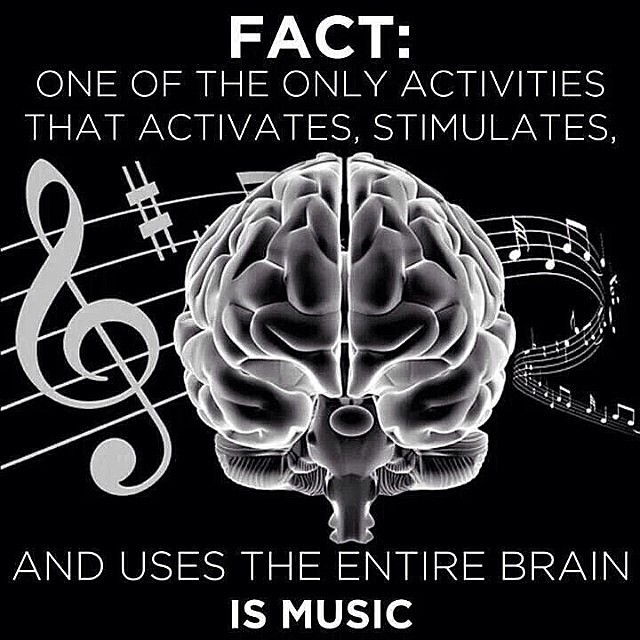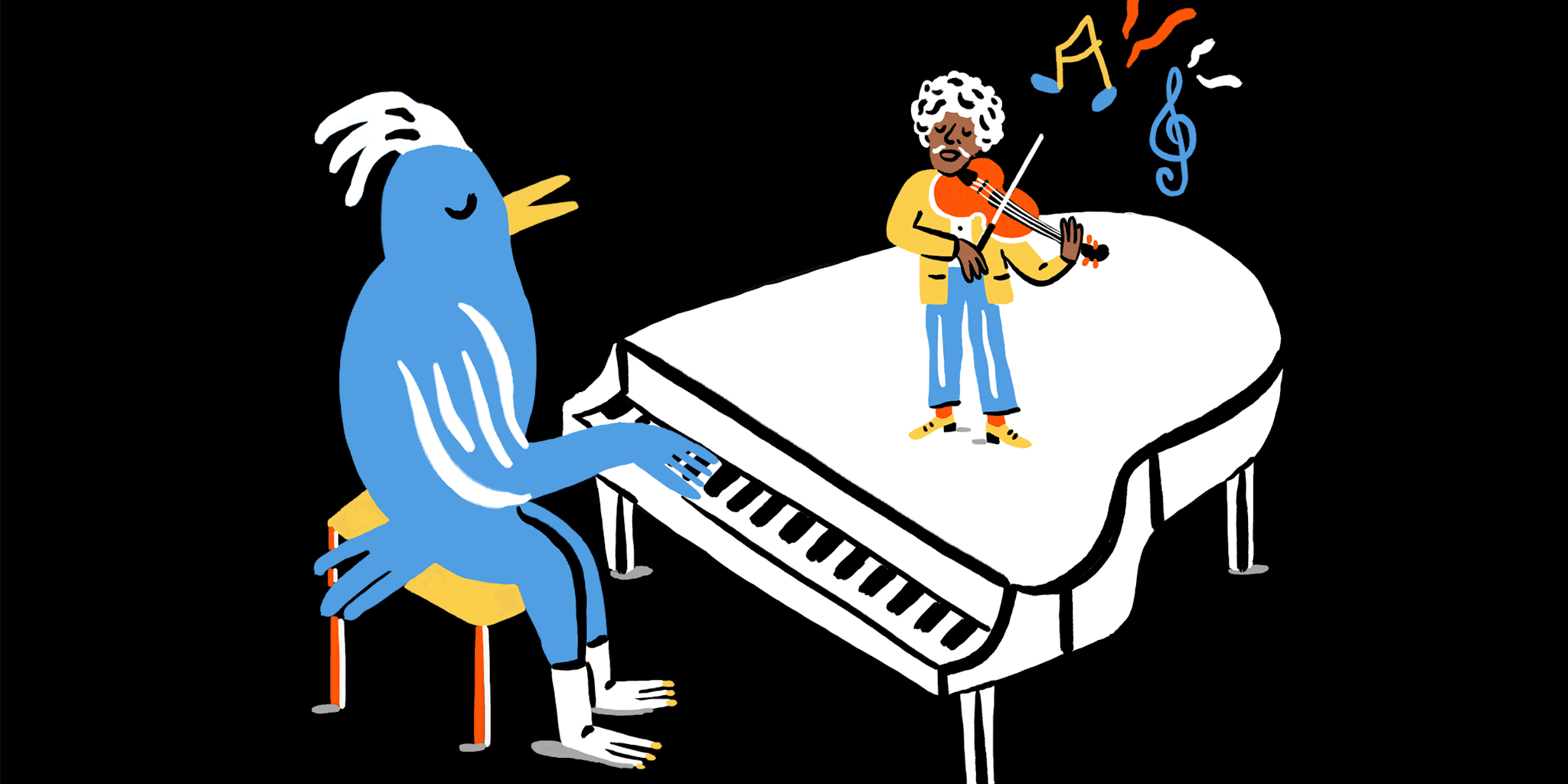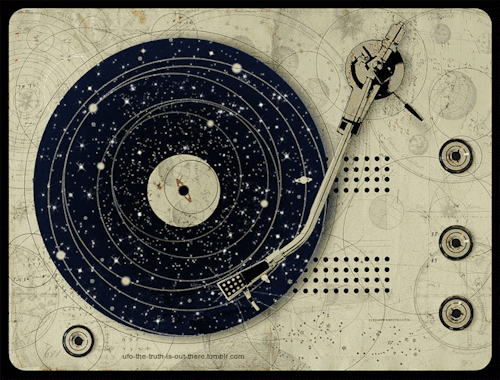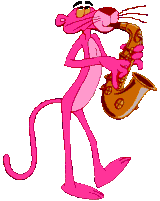Is there a Link Between
🎼Music and Happiness?😇

Science | Emotions
Enjoying a musical like "West Side Story" or "Singin' in the Rain" requires believing that it's perfectly plausible for people to begin singing and dancing during moments of extreme emotion. Be it the highs and lows of teenage love in "Grease" or the determination of a plucky orphan in "Annie," musical numbers provide insight into a character's state of mind. Take "The Sound of Music," in which twirling and singing atop a mountain is enough to help a potential nun who doesn't fit in at the convent find her bliss. That character would go on to teach the miracle of singing to seven unhappy children, and not even the dastardly deeds of the Nazis could get that family down, as long as they had music.
🎼
If you find musicals like this cheesy, you're not alone. Famed linguist Steven Pinker has called music "auditory cheesecake," something that serves no purpose and happened by accident as language developed. But even the most cynical among us would have a hard time denying that hearing a favorite song can completely change our moods. That's why other scientists spend their time putting people into brain scanning machines and playing them tunes.
🎼
If you find musicals like this cheesy, you're not alone. Famed linguist Steven Pinker has called music "auditory cheesecake," something that serves no purpose and happened by accident as language developed. But even the most cynical among us would have a hard time denying that hearing a favorite song can completely change our moods. That's why other scientists spend their time putting people into brain scanning machines and playing them tunes.

🎼
While all this might seem obvious to someone who has ever used some good funk to get out of a bad funk, let's take a look at exactly what happens inside the brain when it's sandwiched between our headphones.
While all this might seem obvious to someone who has ever used some good funk to get out of a bad funk, let's take a look at exactly what happens inside the brain when it's sandwiched between our headphones.


Music and Neuroscience
Music activates so many parts of our brain that it's impossible to say that we have a center for music the way we do for other tasks and subjects, such as language. When we hear a song, our frontal lobe and temporal lobe begin processing the sounds, with different brain cells working to decipher things like rhythm, pitch and melody. Many researchers believe that most of this action happens in the right hemisphere, though others say reducing music to a right brained or left brained activity isn't possible. Regardless of where the brain activity takes place, it does seem to differ based on a whole host of factors, including how much experience with music the person has, whether he or she is hearing live or recorded music and whether or not the music has lyrics.
Music activates so many parts of our brain that it's impossible to say that we have a center for music the way we do for other tasks and subjects, such as language. When we hear a song, our frontal lobe and temporal lobe begin processing the sounds, with different brain cells working to decipher things like rhythm, pitch and melody. Many researchers believe that most of this action happens in the right hemisphere, though others say reducing music to a right brained or left brained activity isn't possible. Regardless of where the brain activity takes place, it does seem to differ based on a whole host of factors, including how much experience with music the person has, whether he or she is hearing live or recorded music and whether or not the music has lyrics.
Pharrell Williams 😊 Happy
👇 Video 👇
👇 Video 👇

While many parts of the brain are involved in deciphering a piece of music, brain imaging scans appear to demonstrate that our emotional reaction to music also takes place in the brain. In a study of a woman who had damage to her temporal lobe, researchers found that while the woman was unable to distinguish between melodies, she was still able to have the emotional reaction that you might expect from hearing happy or sad melodies [source: Weinberger]. Further imaging studies have shown that music we'd expect to be happy activates the reward centers of the brain, releasing dopamine, so that music gives us the same hit of happiness that we would get from a piece of chocolate, sex or drugs.
Does that mean your radio could take the place of an antidepressant?

Music and Happiness
The neurological studies of music on the brain seem to indicate that we're hardwired to interpret and react emotionally to a piece of music. Indeed, this process starts very early on. One study found that babies as young as five months old reacted to happy songs, while by nine months they recognized and were affected by sad songs [source: LiveScience]. Physiological states brought on by music only intensify as we grow. Happy music, usually featuring a fast tempo and written in a major key, can cause a person to breathe faster, a physical sign of happiness [source: Leutwyler]. Similarly, sad music, which tends to be in the minor keys and very slow, causes a slowing of the pulse and a rise in blood pressure. That seems to indicate that only happy music is beneficial, but those that know the value of a good cry or a cathartic release may find that sad or angry music can bring about happiness indirectly.
The neurological studies of music on the brain seem to indicate that we're hardwired to interpret and react emotionally to a piece of music. Indeed, this process starts very early on. One study found that babies as young as five months old reacted to happy songs, while by nine months they recognized and were affected by sad songs [source: LiveScience]. Physiological states brought on by music only intensify as we grow. Happy music, usually featuring a fast tempo and written in a major key, can cause a person to breathe faster, a physical sign of happiness [source: Leutwyler]. Similarly, sad music, which tends to be in the minor keys and very slow, causes a slowing of the pulse and a rise in blood pressure. That seems to indicate that only happy music is beneficial, but those that know the value of a good cry or a cathartic release may find that sad or angry music can bring about happiness indirectly.

Knowing that music has this impact on the body may eventually influence treatment and care for a wealth of patients. For example, music has been found to boost the immune systems of patients after surgeries, lower stress in pregnant women and decrease the blood pressure and heart rate in cardiac patients, thus reducing complications from cardiac surgery [sources: Lloyd, Wiley-Blackwell]. Researchers at Cal State University found that hospitalized children were happier during music therapy, in which they could experiment with maracas and bells while a leader played the guitar, than during play therapy, when their options were toys and puzzles [source: Hendon and Bohon]. Music therapy has also proven to be more effective than other types of therapies in patients suffering from depression, and it's been shown to lower levels of anxiety and loneliness in the elderly [sources: Parker-Pope, Berger].

You don't have to be sick, though, to benefit from the reduced stress and increased happiness that music can bring. Live music may be the most potent happiness trigger because it provides a way to forge social bonds. When you get in a room with people who like the same thing you do, you might create more friendships, a proven factor in the search for happiness.
However, it's worth noting that too much music could be too much of a good thing. Since music triggers reward systems in our brains much like drugs do, music could also become an addiction that becomes impossible to feed. Having music around us constantly - from department stores to elevators to our headphones - could numb us to its effects. Unplugging that iPod every now and then might just help your favorite song sound sweeter later on.
However, it's worth noting that too much music could be too much of a good thing. Since music triggers reward systems in our brains much like drugs do, music could also become an addiction that becomes impossible to feed. Having music around us constantly - from department stores to elevators to our headphones - could numb us to its effects. Unplugging that iPod every now and then might just help your favorite song sound sweeter later on.





No comments:
Post a Comment